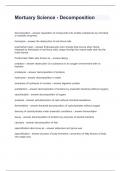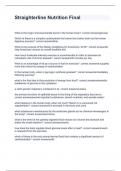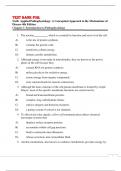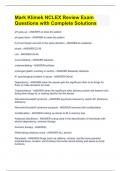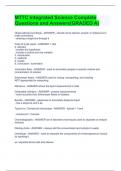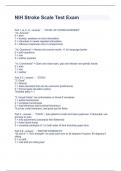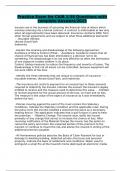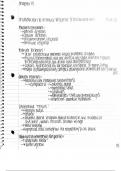KNEEHIGH
Having experienced frequent rejection in his life, Mike Shepherd’s inability to try for drama school1 did not stop him from
founding Kneehigh theatre in 1980 as a part of a local initiative to empower people to “make the most of their lives, planting
a seed in people’s minds that anything is possible.”2 Shepherd’s initial work in Theatre in Education was motivated by
psychologist Bruno Bettelheim’s research into fairy tales and their impact on child development.3 They were soon
recognised as one of the most influential British theatre practitioners by the British Council and educational bodies,4 touring
the US, China and Syria.5 Kneehigh’s Cornish dedications became central to the brand as the nomadic venue of the
Asylum theatre in Cornwall6 captured Kneehigh’s free spirited theatrical style.
This shaped their manifesto and ethos: immersive storytelling which reaches for solutions to ‘universal human problems’
whilst maintaining an anarchical tone. In the “Flying Lovers of Vitebsk,” award winning director Emma Rice was intrigued by
1st hand accounts of communism and martial law in Eastern Europe having visited the Gardzienice Theatre Association in
Poland.7 Inspired by the love story of Marc Chagall and his wife Bella, whom she acted as in the Theatre Alibi production,8
Rice wanted to present the couple’s hope and fear in escaping from Nazi Germany. Sound effects like a distant telephone
hum and the nagging drip of water in a bucket effectively blended reality with the surreal suspension of the actors in mid-air,
suggesting their dynamic relationship in the turbulent 20th century.
Whilst the company’s stimuli range from classic films to literature, they traditionally explore mythology and fairy tales.
Kneehigh’s blend of cultural allusions is seen in “Tristan and Yseult” when Tristan swears in Hungarian and Yseult
questions him in French before they settle the issue in English,9 as language indicates the couple’s division and
reconciliation. Classical stimuli are re-interpreted through Kneehigh’s grotesque exaggerations as in “The Bacchae” a
tutu-clad, all male chorus play the women of Thebes. Rice uses gender swapping to discard Euripides’ classical
conventions thus creating a modern, accessible take on the Greek tale with choral odes being rapped. Music is typical of
Kneehigh’s style as big Music Hall sing-along numbers were included by Rice for the audience to join in, thus blurring the
hierarchy between them and the Gods looking down their ladders. Therefore, Kneehigh’s ‘magical realism’ balances
buffoonery with hard hitting moments that engage the audience through riveting narratives.
We explored Keehigh’s devising process through an exercise on leading centres of the body. Initially, my gait quickened as
I led with my nose conveying an insatiable curiosity, however when my torso led I adopted a laid back manner. When I led
with my finger, my head was haughtily raised as I embodied the distanced nature of accusation. This exercise aided our
retelling of ‘The Three Little Pigs’ establishing the nerdy, arrogant and greedy pigs as upper class archetypes. In my
grotesque depiction of the greedy pig I stuffed a helmet under my clothes and wore a white wig, thus using gender
swapping and grotesque characterisation further embodying the gluttonous stereotype of the upper class. As a live
percussionist, I highlighted the wolf’s knocks by shaking a tambourine to accentuate his blows, thus using Kneehigh’s role
swapping. As the chorus, we gave running commentary of the final showdown between the greedy pig and wolf as a boxing
match, thus allowing our audience to cheer for the wolf whilst breaking the fourth wall in line with Kneehigh. This technique
not only effectively made the audience complicit in the conflict, but as performers allowed us to demonstrate the disparity
between social classes which allowed us to explore deeper conflicts in society. By making the wolf the victor, we drew on
1
https://essentialdrama.com/directors/mike-shepherd-kneehigh/
2
Trenchfield, Catherine.“The Global and Local Appeal of Kneehigh Theatre Company: Brand
Kneehigh”,2022, pp. 18
3
Ibid, pp. 8
4
Ibid, pp. 1
5
http://studioab.co.uk/work/kneehigh-theatre/
6
https://thisiskneehigh.co.uk/kneehighs-history/
7
https://thisiskneehigh.co.uk/items/flying-lovers-return-vitebsk-daniel-jamieson/
8
https://thisiskneehigh.co.uk/items/flying-lovers-return-vitebsk-daniel-jamieson/
9
Grimbert, Joan Tasker. “Fate and the Plight of the Unloved in Kneehigh Theatre’s ‘Tristan & Yseult.’”
Arthuriana, vol. 26, no. 2, 2016, pp. 122
© 2024 Grades Express


